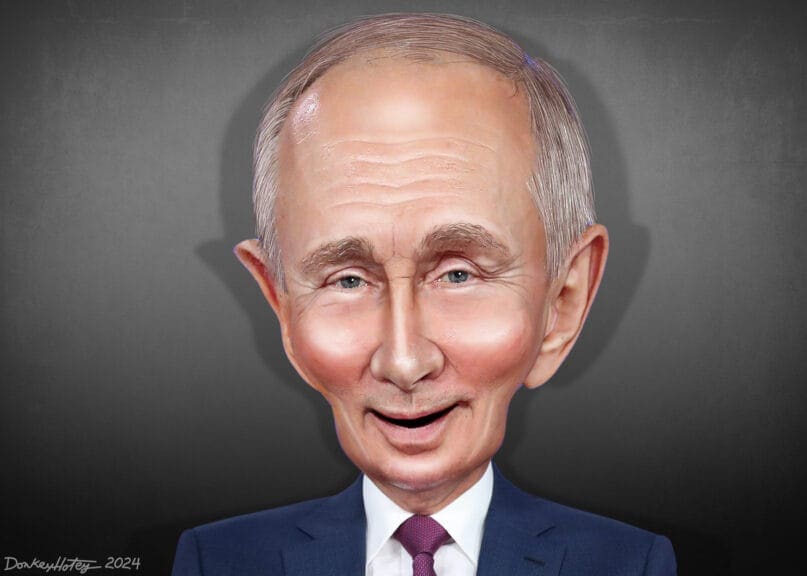Last Updated on December 15, 2025 by Serena Zehlius, Editor
In the realm of political ideologies, the terms communism, Marxism, and socialism often get thrown around with reckless abandon; “She’s a communist Marxist socialist!” It’s as if they were interchangeable Tic Tacs in a political candy jar.
But don’t stock up on these ideological minty-fresh concepts just yet. First, let’s take a moment to unravel the confusing web of political ideologies and find out if they actually mean the same thing or if they’re simply used as “scary buzz words” on the Right. People who aren’t political scientists may not fully understand what it means to be a communist, Marxist, or socialist.
Key Points
- Communism and socialism both advocate for social ownership and address issues of inequality, but communism aims for a classless society and the abolition of private property, whereas socialism allows for some private ownership and often functions within a democratic political system.
- Marxism serves as the theoretical foundation for communism. It analyzes class struggles and critiques capitalism, while communism is a prescriptive ideology that seeks to establish a classless society.
- Socialism can thrive within a capitalist system, as seen in many social democracies.
- These three terms are often used interchangeably in casual conversation, leading to misunderstandings.
- Understanding the differences between communism, Marxism, and socialism helps to demystify the often polarizing attacks using all three at once
This article will go over the differences and similarities between these three ideologies. You might even find yourself questioning your favorite political memes.
What is Communism?
Communism is often viewed as the granddaddy of modern socialist movements. The idea, largely attributed to Karl Marx and Friedrich Engels, advocates for a classless society where all property is publicly owned, and each person works and is paid according to their abilities and needs.
Sounds perfectly utopian, right? But don’t pop the champagne just yet; this idealism often gets bogged down in practical realities.
In theory, communism seeks to eliminate the exploitation of labor by abolishing private ownership, thus ushering in an era of equality among people.
However, in practice, it’s often been implemented with an iron fist—think Soviet Union, Maoist China, and Trump’s America. Instead of the promised paradise, we often see oppressive governments and a lack of individual freedoms.
The Core Tenets of Communism
Class Struggle: The belief that history is driven by the conflicts between different social classes.
Abolition of Private Property: The idea that private ownership of production leads to inequality.
Collective Ownership: Resources and production means should belong to the community.
Dictatorship of the Proletariat: A transitional state where the working class holds power, supposedly leading to a classless society.
What is Marxism?
Marxism can be considered a subset of communism, or rather, the philosophical foundation upon which communism sits. Developed by Karl Marx and Friedrich Engels in the 19th century, Marxism is both a political and economic theory that examines the effects of capitalism on labor, productivity, and economic development, and it critiques the capitalist system itself.

What sets Marxism apart is its analytical approach to understanding the dynamics of social class, economic power, and political structures. Unlike communism, which is often viewed as a prescriptive ideal, Marxism is more of a diagnostic tool that explains how societies evolve and how class struggles can lead to revolutionary changes.
The Core Tenets of Marxism
Historical Materialism: The theory that material conditions and economic factors shape societal structures.
Class Conflict: The tension between different social classes drives societal change.
Labor Theory of Value: The idea that the value of a good is directly related to the labor required to produce it.
Revolutionary Change: The belief that the working class must rise up to dismantle capitalist systems.
What is Socialism?
If communism is the lofty dreamer, socialism is the pragmatic sibling who believes that some reforms can lead to a more equitable society without completely ditching capitalism.
Socialism advocates for social ownership and democratic control of the means of production, either through the state or cooperatives. Unlike communism, socialism allows for the existence of private property, but with limitations designed to promote social welfare and economic equality.
Socialism can manifest in various forms, from the democratic socialism of Scandinavian countries, which combine free-market capitalism with extensive welfare programs, to more authoritarian versions that lean towards state control.
The beauty—or chaos—of socialism lies in its adaptability to different political and economic contexts.
The Core Tenets of Socialism
Social Ownership: A belief in the social or collective ownership of production.
Economic Planning: The idea that the economy should be planned and regulated by the community.
Redistributive Policies: Implementing measures to reduce income inequality through taxation and social programs.
Political Democracy: A committment to democratic processes and political rights.
Why You Can’t Be a Communist Marxist Socialist
At first glance, one might think that communism, Marxism, and socialism are best friends who just can’t seem to get it together. But dig a little deeper, and you’ll find that these ideologies are often at odds with each other in fundamental ways. For instance, communism advocates for the absolute abolition of private property, while socialism is willing to coexist with it in a modified form. This key difference can lead to quite the ideological spat.
While Marxism serves as a theoretical basis for communism, it doesn’t necessarily prescribe a specific political structure, leaving room for various interpretations and implementations. Consequently, one could argue that Marxism is more of a lens through which to analyze capitalist societies rather than a strict guide for action.
So, trying to label oneself as a communist Marxist socialist feels a bit like donning three different hats at once—just ask any political theorist and prepare for some eye rolls!
Historical Context and Examples
Throughout history, we’ve seen numerous attempts to implement these ideologies, often with mixed results. The Soviet Union’s experiment with communism led to widespread famine, oppression, and eventually, its dissolution. On the other hand, Scandinavian countries have successfully adopted socialist principles within a capitalist framework, resulting in high standards of living and economic stability.

This historical context provides a clear picture of how these ideologies play out in the real world, and why one might prefer to isolate their political identity rather than lump all three together.
The failures of communism and the successes of socialism serve as cautionary tales and blueprints, respectively, for future endeavors in achieving social and economic justice. However, it’s important to acknowledge that context matters; what works in one country may not be applicable in another.
Communism vs. Marxism: Similarities and Differences
While communism and Marxism share a common heritage, they diverge in significant ways. Communism is often seen as a more prescriptive ideology that aims to achieve an ultimate goal: a classless society devoid of private property. Marxism, however, is more analytical, providing a framework to understand class struggles and capitalism’s role in societal evolution.
In practical terms, communism may enforce strict state control, as seen in totalitarian regimes, whereas Marxism emphasizes the necessity of revolutionary change driven by the working class. Thus, while they share foundational beliefs, their methodologies and implications can lead to vastly different outcomes. It’s like comparing a cookbook to a food critic; both are related to food but serve entirely different purposes.
Marxism vs. Socialism: The Divergence
When we compare Marxism and socialism, we notice that the former tends to focus more on the theoretical aspects of class struggle and economic critique, while the latter is more concerned with practical governance and policy implementation. Socialism describes a range of political and economic practices that seek to address inequality through reforms within a capitalist framework, whereas Marxism often calls for a complete overhaul of the capitalist system.
This distinction becomes evident when we look at democratic socialism, which is rooted in socialist principles but operates within a democratic political system. On the flip side, Marxism may lead to revolutionary calls that dismiss democratic processes altogether. So while they share some common goals, the paths they take to achieve those goals can be fundamentally different.
Socialism vs. Communism: The Misunderstandings
The confusion between socialism and communism is perhaps the most pervasive. Many people mistakenly assume that socialism automatically leads to communism, but this is a classic case of logical leapfrogging.
Socialism can exist within a capitalist framework and can even thrive alongside it, as evidenced by the social democracies of Europe. Communism, however, foresees a total dissolution of the capitalist system, leading to a societal transformation that may not be compatible with democratic values.
In popular culture, the portrayal of socialism often exaggerates its potential to spiral into communism, resulting in fear-mongering and misunderstandings. This hinders meaningful conversations about social programs and reforms that could genuinely benefit society.
Check out Camden, New Jersey. They took on criminal justice reform and totally nailed it.
By demystifying these ideologies and understanding their unique characteristics, society can have more constructive conversations about government and equity.
So, there you have it! We swam through the murky waters of communism, Marxism, and socialism, and while they may share some family traits, they’re not interchangeable terms fit for a political blender.
Each ideology possesses its own historical context, theoretical background, and practical implications.

Understanding these distinctions helps when you’re engaging in informed discussions about social justice, governance, and economic systems. Whether you lean more toward socialism, find yourself intrigued by Marxism, or prefer the radical vision of communism, knowing the differences allows for a more nuanced perspective.
The Takeaway: Understanding the Labels
In a world that often favors catchy slogans over nuanced understanding, it’s important that we’re mindful of the labels we apply to ourselves and others. Just as you wouldn’t mix peanut butter and mayonnaise without a second thought, don’t blend your political ideologies without understanding their unique flavors!
Next time you find yourself in a conversation about political ideologies, you’ll be equipped with the knowledge to engage in the discussion without the risk of sounding like a confused hipster trying to order an obscure coffee.
Knowledge is power, and in this case, it can save you from a hefty dose of embarrassment when you’re out having drinks at the bar.
FAQs
Are communism and socialism the same thing?
No, they are not the same. While both advocate for social ownership and address issues of inequality, communism aims for a classless society and the abolition of private property, whereas socialism allows for some private ownership and often functions within a democratic political system.
Is Marxism a form of communism?
Marxism serves as the theoretical foundation for communism. It analyzes class struggles and critiques capitalism, while communism is a prescriptive ideology that seeks to establish a classless society.
Can socialism exist within a capitalist framework?
Yes, socialism can thrive within a capitalist system, as seen in many social democracies. It implements policies that promote social welfare and reduce inequality without abolishing capitalism outright.
Why is there confusion about these terms?
The terms are often used interchangeably in casual conversation, leading to misunderstandings. Additionally, the historical outcomes of these ideologies have contributed to the confusion.
What is the main takeaway from understanding these ideologies?
Understanding the distinctions between communism, Marxism, and socialism allows for more informed discussions on political ideologies and policies, helping to demystify the often polarizing conversations surrounding them.













